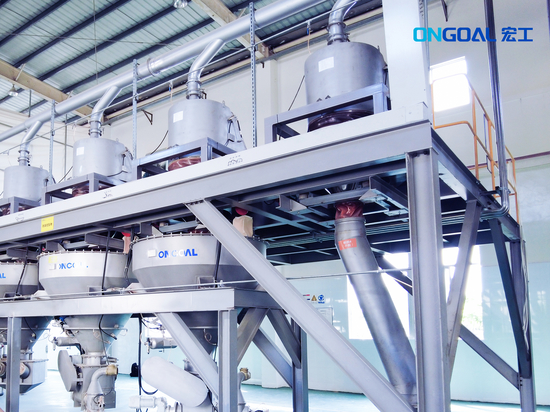
#Product Trends
5 fast facts to know about LFP batterie VS ternary lithium battery
Which is better, lithium iron phosphate battery or ternary lithium battery? What is the main difference and how do we make a choice? In fact, ternary lithium batteries and lithium iron phosphate batteries have their own merits. Choosing the right lithium battery is the best for you.
Lithium iron phosphate batteries
The LFP battery refers to the lithium-ion battery with lithium iron phosphate as the cathode material. This type of battery is characterized by the absence of precious metal elements (such as cobalt, etc.). In actual use, lithium iron phosphate batteries have the advantages of high-temperature resistance, high safety stability, lower price, and better cycle performance. The low price of raw materials and phosphorus and iron exists in the earth's rich resource content, so there will be no supply problems.
The advantages of lithium iron phosphate batteries:
1. safe to use
Lithium iron phosphate crystals in the P-O bond is stable, and difficult to decompose, even at high temperatures or overcharge will not be as the lithium cobalt acid structure collapse heat or the formation of strong oxidizing substances, so it has good safety. Lithium iron phosphate battery after rigorous safety testing, even in a collision, a puncture will not explode.
2. the improvement in lifetime
Lithium iron phosphate power battery has a cycle life of more than 2000 times, and the standard charge (5 hours rate) used can reach 2000 times. The same quality of lead-acid batteries is at most 1 ~ 1.5 years, while lithium iron phosphate batteries are used under the same conditions, and the theoretical life will reach 7 ~ 8 years.
3. high-temperature performance
Lithium iron phosphate battery thermal peak can reach 350 ℃ -500 ℃, while lithium manganate and lithium cobalt acid only in about 200 ℃. Wide operating temperature range (-20C - 75C), with high-temperature resistance characteristics.
4. large capacity
Batteries often work under the conditions of discharge, the capacity will be rapidly lower than the rated capacity value, this phenomenon is called the memory effect. Like nickel-metal hydride, nickel-cadmium batteries have memory, and lithium iron phosphate batteries do not have this phenomenon, no matter what state the battery is in, can be used as it is charged, with no need to first put out and then recharge.
5. lightweight
The same capacity of lithium iron phosphate battery volume is the volume of lead-acid batteries 2 / 3, the weight of lead-acid batteries 1 / 3.
6. Environment-friendly
Lithium iron phosphate battery is pollution-free, in line with the European ROHS regulations, for the Absolute Green Battery Certificate.
7. fast charging
Can be charged and discharged quickly with a high current of 2C, a 1.5C charge in a special charger that can be filled within 40 minutes, and a start-up current of up to 2C.
Disadvantages of lithium iron phosphate batteries:
1. lithium iron phosphate battery cathode vibration density is small, the density is generally 0.8 to 1.3 with large volume.
2. poor electrical conductivity, slow diffusion of lithium ions, high times when charging and discharging, the actual specific capacity is low.
3. poor low-temperature performance of lithium iron phosphate batteries.
4. lithium iron phosphate battery single cell life is long, at about 2000 times, but the life of the lithium iron phosphate battery group is short, generally at about 500 times.
Ternary lithium batteries
Anode material using lithium nickel cobalt manganate (Li (NiCoMn) O2) ternary cathode material, graphite as the negative electrode material of lithium batteries. Different from lithium iron phosphate, the ternary lithium battery voltage platform is very high, which means that in the same volume or weight, ternary lithium battery specific energy, and specific power is greater. In addition, in terms of large-rate charging, and low-temperature resistance, ternary lithium batteries also have great advantages.
Advantages of ternary lithium battery:
1. High voltage platform. The higher the voltage platform, the greater the specific capacity, certainly the same volume, weight, and even the same ampere-hour battery, the ternary lithium battery with a higher voltage platform have a longer range. The ternary material voltage platform is significantly higher than lithium iron phosphate, high voltage can reach 4.2 volts, and the discharge platform can reach 3.6 or 3.7 volts.
2. high energy density.
3. high vibration density.
Disadvantages of ternary lithium battery:
1. poor safety
2. poor high-temperature resistance
3. Poor lifespan
4. poor high-power discharge
5. the elements are toxic, ternary lithium batteries have high-power charge and discharge after a sharp rise in temperature, and high temperature after the release of oxygen is very easy to burn.
Applications:
Lithium iron phosphate battery applications include data centers, server room systems, communication base stations, emergency power, car start, modified vehicles, industrial equipment, medical equipment, energy storage field, and so on. The lithium battery energy storage field will be the largest application market for lithium batteries. Ternary material lithium battery is more suitable for passenger cars.




